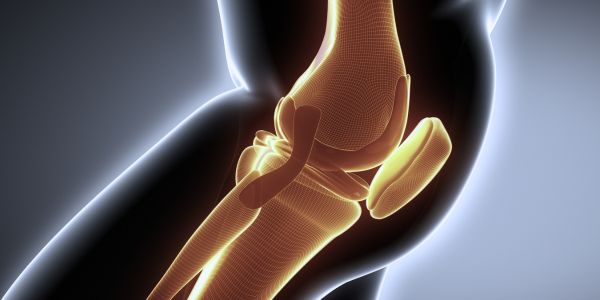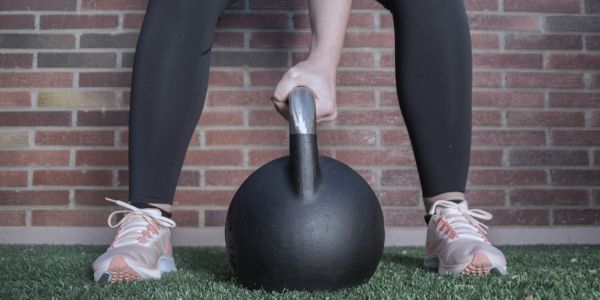Simple Techniques to Build Stronger Knees, Cartilage, and Ligaments

Introduction
Another part of the movement—of course, it’s not just that knees enjoy being bent to facilitate movement. It’s no secret that our knees do more than just allow us to walk. They quietly suffer in silence quite a lot, yet we almost always do not spare a thought for them until nagging issues show up. Whether you’re an athlete, a weekend warrior, or simply someone keen to preserve healthy joints into old age, knee care is important. Let’s discuss some simple yet effective methods to strengthen the knees, cartilage, and other ligaments to keep them in good working condition for a long time.
1. Prevent Dehydration

The Fluid Connection
You may ask, “Why should I care about drinking water for my knees?” The answer may surprise you—a lot! Water is essential for the health of your knees, as well as for any joint.
Why Water Matters for Your Joints
The connective tissue, especially cartilage, is composed mainly of water—80% to be precise. It’s no wonder that your cartilage contains so much collagen, with the cells being mostly made up of water. Consider it a sponge—a dry sponge is hard and brittle, but it becomes soft and resilient when hydrated.
Hydration Habits for Healthy Knees
To maintain your knees, or any joints for that matter:
- It is advisable to drink at least 8 glasses of water a day, and more during physical activity or on hot days.
- Do not wait to feel thirsty—thirst is a signal that you’ve already lost a small amount of water.
- Consume foods that are high in water content, like cucumber, watermelon, and zucchini, to increase your hydration levels.
- Consider keeping a folding reusable water container nearby so that you are not burdened by thirst.
After all, every single drop of water you consume helps replenish your knees, a highly revered joint in the body!
2. Consume More Protein

The Building Blocks of Joint Health
Contrary to popular belief, especially among bodybuilders, protein is essential for everyone, particularly for joint health. Your body uses protein to build and heal various parts and organs, including the cartilage, ligaments, and tendons in the knees.
The Role of Protein in Maintaining Knee Health
Inadequate protein intake can contribute to:
- Damage to cartilage
- Reduced flexibility of ligaments and tendons
- Decreased strength of the muscles supporting the knee joint
Increasing Your Protein Intake
To ensure you provide your knees with the required nourishment, here’s what to do:
- Incorporate lean meats, fish, eggs, or even beans and lentils, which are rich in protein, into your diet regularly.
- Consider a protein shake or smoothie at any time of the day.
- Snack on nuts, Greek yogurt, and cottage cheese, which are all protein-heavy options.
- Aim for an average daily intake of 0.8 grams to 1.5-2 grams of protein per kilogram of body weight, especially if you’re physically active.
Remember, meeting the required amount of protein is crucial, but the quality of protein matters too. Whenever possible, choose whole food sources.
3. Regulate Your Body Weight

The Weighty Issue
When it comes to knee health, evaluating the weight sustained by your knees is essential. Even a small increase in weight adds pressure on the knees, leading to more degeneration over time.
The Relation Between Weight and Stress on Knee Joints
Here’s an interesting statistic: For each extra pound of body weight, an additional 4 pounds of pressure is placed on the knees when walking. This means that losing just 5 pounds can effectively reduce the stress on the knees by 20 pounds!
Also Read: 9 Warning Signs You Have a Brain Tumor
Ways to Maintain a Healthy Body Weight
To maintain an ideal body weight and preserve your knees:
- Eat plenty of fruits, vegetables, lean meats, and whole grains. Ensure your diet is diverse.
- Avoid overeating, even when changing your diet—opt for lower-calorie plates instead.
- Engage in exercises that are less stressful on the knees, such as swimming, cycling, or using elliptical machines.
- If necessary, track your calories by keeping a food diary or using a mobile app.
- Avoid crash diets—gradual weight loss is more sustainable and healthier for all systems, including your joints.
Remember, the goal is not just an ideal body weight but one that is healthy and safe for your knees.
4. Consuming Vitamin C

The Connective Tissue Viewpoint
Vitamin C is more than just a remedy for colds; it plays a significant role in knee and joint health. Vitamin C is essential for the synthesis of collagen, an antioxidant protein critical for healthy cartilage and ligaments.
The Benefits of Vitamin C for the Knees
Adequate vitamin C intake can:
- Increase collagen synthesis and sustain its strength in cartilage.
- Help reduce inflammation in the joints.
- Aid in reducing inflammatory joint damage caused by oxidative stress.
How to Get More Vitamin C from Foods
If you want to ensure you get enough vitamin C for the health of your knees:
- You can consume fruits like oranges, lemons, and grapefruits that are rich in citrus.
- Include foods like strawberries, broccoli, and bell peppers in your diet, as they are also rich in vitamin C.
- If you find it hard to meet your daily vitamin C requirement through diet, you may consider taking extra vitamin C.
At least 65-90 mg is the generally recommended dose per day. Some studies have shown that higher amounts offer joint health benefits. Despite the fact that vitamin C is a water-soluble vitamin and excess amounts are normally washed away, potential side effects such as gastrointestinal problems could arise. As always, too much of anything is bad.
5. Strength Training

Thus, Improving Your Knee Protection
What surrounds your knees is of equal value to the knees themselves when considering knee health. Strengthening exercises that target knee-supporting muscles are essential, as they significantly improve the stability and functionality of your knees.
When Is Strength Training Beneficial for People with Bad Knees
When done on a regular basis, strength training can:
- Engage more muscles around the knee, enabling it to hold more weight
- Secure the joints better, thereby preventing injuries
- Develop all muscles in the legs, relieving pressure on the knees
Best Exercises for Strengthening the Knees
Here are some exercises you can do:
- Preferred Squats: Begin with bodyweight squats and advance as your strength improves.
- Leg Press: This is an excellent exercise if you’re targeting your legs and have access to a health club or gym.
- Lunges: These target several muscles in the legs and improve balance as well.
- Leg Extensions: These exercises target the quadriceps, which play a significant role in stabilizing the knee.
- Hamstring Curls: Don’t forget about the muscles in the lower half of your legs!
It is recommended to start slow and build up gradually. When performing any physical exercise, it is usually advisable to see a specialist to ensure you maintain the correct posture and lift appropriate weights for your fitness level.
6. Eating More Allium Vegetables

About Garlic and Onions
Onions, leeks, garlic, and chives, also known as allium vegetables, will not only enhance the flavor of your food but also provide joint-protecting benefits for your knees. These vegetables contain substances that can support and even protect your knees.
How Does the Consumption of Allium Vegetables Help in Maintaining and Restoring the Health of the Knee Joints?
Benefits of Allium Vegetables
- They contain sulfur compounds, which are essential for the production of connective tissue in the body.
- They have anti-inflammatory properties, which can help alleviate joint aches and swelling.
- They are packed with antioxidants that protect against cellular oxidative damage within the joints.
Making Rational Changes to Your Eating Plan
Here are some delicious ways to include more allium vegetables in your meals:
- Mince garlic and add it to stir-fries, soups, and sauces.
- Use onions and leeks as a base for soups, stews, and casseroles.
- Roast garlic cloves instead of chopping them, which gives them a sweet and mild flavor.
- Sprinkle chopped chives over salads or add them to soups as a garnish.
- Add leeks to potato soup or use them as a flavorful side dish.
Keep in mind that most of these vegetables are safe for most people, but some may experience digestive discomfort if consumed in large quantities. As with all foods, moderation is key.
Latest Health Tips:
- 8 TOP Foods To Help Improve Your Eyes Naturally
- 4 Symptoms of Gallbladder Problems You Must Know
- 12 Common Warning Signs Of ADHD You Shouldn’t Ignore
- 11 Super Benefits of Eating Ginseng Every Day
- 10 Heart Healthy Foods After Age 50+ You Must Eat!
7. Eating Bluefish

The Omega-3 Connection
As mentioned earlier, bluefish, along with mackerel, sardines, and salmon, is excellent for enhancing knee health. Their high levels of omega-3 fatty acids are the key.
The Benefits of Bluefish for Your Knees
Consuming bluefish regularly may:
- Help alleviate knee pain by reducing swelling in the joints
- Enhance the synthesis of collagen, which is important for healthy cartilage
- Provide protein for the recovery of damaged tissues and the strengthening of muscles around the knees
Including Bluefish in Your Dietary Plans
Here are some ideas to increase your consumption of bluefish:
- Grill or bake salmon for a healthy, quick supper.
- Toss canned sardines in salads or spread them on whole-grain bread.
- Use mackerel in tacos or as part of a seafood pasta dish.
- Try smoked fish as a topping for breakfast or lunch for a unique twist on incorporating fish into your meals.
Aim for at least two servings of fatty fish per week. If you’re not a fish lover or are vegetarian, then perhaps ask your doctor for omega-3 supplements.
As a point of note, although omega-3s have many advantages, for some of us, modifying the fish diet may be necessary due to the presence of mercury in certain species. It is important to vary the diet and follow recommendations regarding the safe consumption of fish.
8. Dedicate Time to Stretching Daily

The Role of Stretching
Stretching is an essential factor in maintaining knee health. Performing knee stretching exercises regularly can help sustain the flexibility of the muscles and tendons surrounding the knee joint, easing tension on the joints and improving the functionality of the entire knee.
Why You Should Stretch Every Day for Knee Health
Regular stretching will:
- Increase the range of motion in your knees and the surrounding areas.
- Minimize muscle tension that extends toward your knees.
- Stimulate blood flow, leading to better recovery of joint tissue and improved distribution of essential nutrients.
- Act as injury prevention by conditioning your muscles and joints for exercise.
The Following Stretches Are Critical in Protecting the Knees from Injury
Add these stretches to your daily schedule:
- Knee Bends: Stand up straight with a chair in front of you for support. You may not need to bend your knees perfectly, but at the end of each knee straightening, lift one heel up, and at the end of each knee bend, lift the other heel. It is recommended to hold the position for 30 seconds and then switch legs.
- Standing Hamstring Stretch: This stretch begins by sitting on the floor and extending one leg in front of you. Attempt to grab your foot while keeping your back in its natural position. Switch legs after holding for thirty seconds.
- Calf Stretch: Stand facing a wall, with one foot bent in front and one foot straight back behind you. Assist yourself by placing your hands on the wall. Switch legs after holding for thirty seconds.
- IT Band Stretch: Cross one leg over the other. The sides of the extended leg will strongly engage the knee region, creating a feeling of discomfort on the outer thigh. Hold for 30 seconds and switch sides.
It is important to realize that, by definition, nothing should hurt while stretching. If you sense pain or discomfort, try easing up on the stretch. Stretching also requires preparing your body first—even a brief two-minute walk before stretching will activate the tissues and make stretching easier.
9. Glucosamine and Chondroitin Supplements

The Joint Health Duo
Both glucosamine and chondroitin are present in cartilage structures. However, in recent years, they have gained attention as dietary supplements that may contribute to improving joint health, especially in people with osteoarthritis.
How Could These Supplements Help?
The studies on glucosamine and chondroitin have not all been favorable. However, some studies suggest that glucosamine and chondroitin may:
- Help preserve cartilage.
- Alleviate joint stress and reduce swelling in the joints.
- Provide relief for certain people with osteoarthritis by slowing its progression.
Also Read: 9 Common Mistakes You Are Making When Drinking Water
Considerations When Considering Supplementation
When considering glucosamine and chondroitin supplements:
- Always talk to your doctor first, especially if you have other medical conditions or take certain medications.
- Be patient; it could take weeks or months to see any improvements.
- Purchase products from reputable sources whose efficacy has been proven by relevant research.
- Take the recommended amount as indicated on the label or as prescribed by your doctor.
These supplements can also have side effects, such as increased interaction with blood-thinning agents. While some individuals find these supplements beneficial, there is no cure or pill that will completely treat joint conditions. These supplements are most effective when they are part of a comprehensive knee health regimen, which includes dietary considerations, physical activity, and maintaining an optimal body weight.
Conclusion
Knee maintenance doesn’t need to be as difficult as some might think. Simple actions like staying hydrated, consuming necessary protein and omega-3-rich foods, maintaining a healthy weight, exercising with weights, and stretching can help prevent joint conditions and improve the health of knees, cartilage, and ligaments.
As you adopt these solutions, be prepared to practice them consistently over time. People tend to seek quick solutions for issues that are not easily resolved. However, sticking with these strategies will undoubtedly lead to stronger, healthier knees—something everyone would wish for. Furthermore, for those considering surgery, it’s important to note that strengthening the knees beforehand can be beneficial, reducing the reliance on surgical interventions.
You should know your limitations and contact a healthcare provider for assistance if needed. Here’s to expecting strong, stable, and pain-free days ahead that will allow you to move forward for many years to come!




